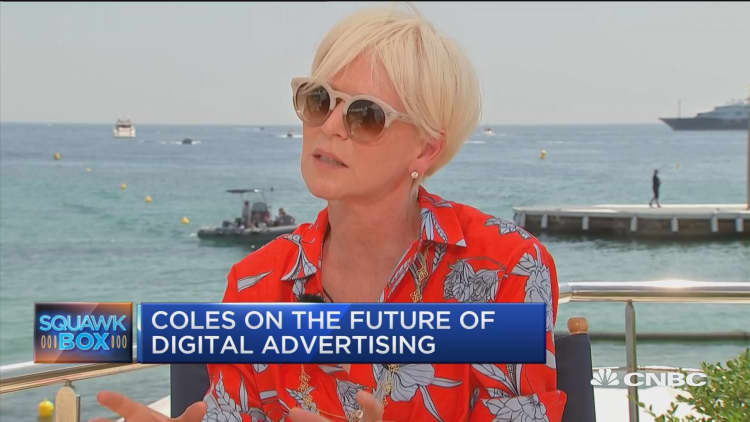Marketing budgets are set to go up over the coming year, with increasing amounts spent on digital platforms such as Google and Facebook, while more marketing functions are set to be brought in-house, according to research published Tuesday.
Sixty percent of marketers expect budgets to rise, with 43 percent planning for increases of 5 percent and up, with those in the automotive, financial services and technology sectors feeling the most confident, according to 1,000 marketing chiefs surveyed in 10 countries by the Dentsu Aegis Network.
Fifty-four percent expect to spend more on digital platforms in the next two to three years, and 33 percent said they would reduce the number of external agencies they work with. Twenty-nine percent expect to work more with management consultancies.
The figures come amid a tumultuous time for the marketing and media industries, with marketers looking to work with advertising partners more efficiently and the large agency groups having to adapt to survive against tech companies and management consultancies.

The research also shows that people's intolerance of advertising is a primary concern: 46 percent said this is a key barrier. "One of the most challenging trends facing marketers within global brands is the creeping realization that often consumers don't really want to see advertising — at least, not in its traditional form," Dentsu's report states.
In June, Marc Pritchard, the Procter & Gamble marketer with the world's largest ad budget, proclaimed that "mass disruption," in part because of people's rejection of advertising, meant it would have to "completely reinvent how we build our brands."
Being able to target people individually is one way of improving the efficiency of advertising and the research suggests that this is a priority for chief marketing officers (CMOs). Twenty-nine percent cite "the ability to use data to reach real people rather than proxies or customer segments" as their biggest strategic opportunity over the next two to three years.

However, the use of personal data is now subject to the European Union's General Data Protection Regulation (GDPR) law, which came into force on May 25, and requires businesses to be much clearer about the information they hold on people. Most marketers in the survey believe the new rules will make it harder to target people directly, with executives working in regulated industries such as financial services, telecommunications and pharmaceuticals the most concerned.
Artificial intelligence (AI) and blockchain are also likely to be important in marketing in the coming years, with 26 percent citing the potential of these new technologies as an opportunity. But with emerging technologies come risks, and 29 percent of respondents said their number one concern is data misuse or a breach in the next two to three years.
While marketing spend is likely to go up in the next 12 months, budgets can be hard won, with 48 percent of marketers citing "securing long-term investment" as their main internal challenge. Forty-four percent said their main challenge is the lack of integration in the "customer experience," or the different ways in which companies deal and communicate with consumers, while 43 percent cited a lack of internal talent.

Dentsu's report suggests that creating ad campaigns that spark an emotional reaction is one way of getting a message across, along with the careful use of data for targeting. It also suggests that "brand commerce" will be key, such as the Markable app where people take a picture of an outfit they like and a computer vision identifies where they can buy similar items. Consumers can then make a purchase through the app.
The report also identifies "brand purpose," where a company has a vision beyond just what they sell, as important. Nearly 70 percent of those surveyed said making sure their brands had a positive impact on society was an important way to engage people.
"It's those brands that are best at reorienting their business and operating models around the consumer that will win. That can take time and money, both of which are in short supply — CMOs identify a lack of long-term investment as the key challenge to delivering their strategy," said Nigel Morris, chief strategy and innovation officer at Dentsu.
Dentsu Aegis surveyed 1,000 senior marketers online in April and May 2018, in Australia, China, France, Germany, Italy, Spain, the U.K., Japan, Russia and the U.S.

